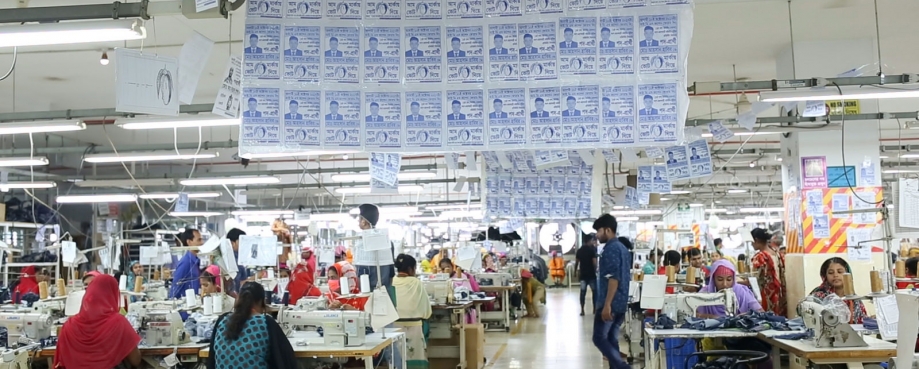
- Better Buying and Ethical Trading Initiative to join forces for 18-month programme
- Local suppliers will be encouraged to rate international brands’ purchasing practices
- Brands’ buying teams will be asked to use supplier feedback to identify areas for improvement
Better Buying and the Ethical Trading Initiative (ETI) are to collaborate in Bangladesh to support and promote responsible buying practices within garment industry supply chains. Over an 18-month period, the partnership will invite Bangladeshi suppliers to anonymously evaluate their buyers using the Better Buying online rating platform.
The Better Buying platform gives buyers anonymised ratings from suppliers on seven key aspects of purchasing practices – planning and forecasting, design and development, cost and cost negotiation, sourcing and order placement, payment and terms, management of the purchasing process, and CSR harmonization.
ETI’s apparel and textiles lead, Martin Buttle, pointed out that joint ETI and International Labour Organisation (ILO) research shows that purchasing practices can negatively impact wages and working conditions in global supply chains. He added that ETI believes Better Buying scores and analysis will therefore serve as an independent method of determining strengths and weaknesses within brands’ procurement cycles.
“We are seeing increasing debate about the impact of buying practices on the ability of suppliers to maintain good labour standards," said Martin Buttle. "International retailers and brands can therefore only gain from this initiative, in terms of underpinning sustainable business for all, building their reputation and improving conditions for workers.”
CASE STUDY - How ETI member Bonmarché is partnering with Better Buying:
Clothing company, Bonmarché started engaging with Better Buying in the fourth quarter of 2017 by providing Better Buying with a list of strategic suppliers together with a letter inviting its suppliers to evaluate the company’s performance. The results from all suppliers that rated were then aggregated. The anonymised findings were analysed by the Better Buying team and provided to Bonmarché earlier this month. Ian Leader, Head of Quality Assurance & Sourcing at Bonmarché said, “We welcome the Better Buying initiative, promoted by the ETI, and it has already proven a really useful tool for Bonmarché as part of our continual focus on improving purchasing practices”.
Better Buying and ETI expect the information and analysis that will result from the supplier ratings to help companies understand which purchasing practices are working well and which may benefit from focused efforts to improve.
Marsha Dickson and Doug Cahn, Better Buying co-founders, said: “By using Better Buying, brands will be able to identify how their buyers, product developers, and others responsible for bringing product to market can improve their day-to-day business activities, thus helping their suppliers uphold better labour standards.”
ENDS
For further information email either Tom Phillips or Jane Moyo at ETI or info@betterbuying.org or ring ETI on +44 (0)20 7841 4352
Notes for Editors
- Better Buying is a unique system for suppliers to communicate with their buyers about purchasing practices that are working well and those that need improvement, without risking their business relationship. The overarching goal of Better Buying is to contribute to industry-wide transformation of buyer purchasing practices so that business relationships support suppliers in providing decent workplace conditions. Better Buying achieves its goal by widely disseminating detailed analysis on the purchasing practices of buying companies using supplier ratings submitted biannually and working with stakeholders to accelerate industry-wide improvements. Better Buying Executives are: Dr. Marsha Dickson, Irma Ayers Professor of Human Services in the Department of Fashion and Apparel Studies at the University of Delaware and Doug Cahn, seasoned professional in the field of labour and compliance in global supply chains. For more information about Better Buying, see: www.betterbuying.org
- ETI is a leading alliance of companies, trade unions and NGOs that promotes respect for workers' rights around the globe. ETI has a membership of 59 apparel and textiles companies including some of the major buyers in the sector. ETI has recently launched a Guide to Buying Responsibly. We view improving purchasing practices as a key responsibility of brands to mitigate their adverse human rights impacts in line with the UN Guiding Principles on Business and Human Rights (UNGPs). For more information, see: www.ethicaltrade.org
